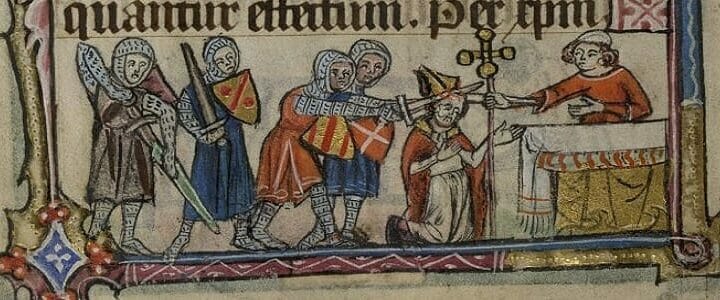The other shoe has dropped. The Saudi government has admitted that employees of its intelligence service killed journalist and dissident Jamal Khashoggi inside the consulate in Istanbul. The admission late Friday afternoon that Khashoggi died in the consulate surprised some, but fooled no one.
A Saudi statement said that the discussion—or more accurately, interrogation—”developed in a negative way [which] led to a fight and a quarrel” that left Khashoggi dead. No one seriously buys that a fight truly broke out, other than Khashoggi fighting for his life as a security team of 15 men held him down.
The theory of the rogue saudi operatives
The “rogue operation” theory was floated early, and it looks like it’s the story the Saudis have settled on. Less than an hour before the public admission of culpability, the Saudi royal court released a statement that King Salman bin Abdel Aziz Al-Saud had relieved media consultant Saud al-Qahtani of his duties. The king also relieved three senior intelligence officials. Presumably, these men were involved in approving the operation that many believe was designed to return Khashoggi to Saudi Arabia against his will.
Another 18 men are under arrest inside Saudi Arabia. This undoubtedly represents the extent to which the Saudi government is willing to go in admitting culpability. The court is keeping the crown prince away from the center of this controversy. Saudi Foreign Minister Adel Al-Jubeir spoke with Fox News Channel’s Bret Baier on Sunday, and denied that the prince (who prefers to be called by his initials MBS) was involved.
“This was an operation where individuals ended up exceeding the authorities and responsibilities they had. They made the mistake when they killed Jamal Khashoggi in the consulate and they tried to cover up for it.” They don’t need to ask if anyone got the license plate number of the bus that just ran them over; MBS was driving it.
It won’t take long for the saudi Prince to regret the khashoggi affair
No one seriously believes the “rogue operation” excuse any more than the “interrogation gone wrong” angle. Sooner or later, MBS will really regret this. Every day, more high-powered international financiers back out of the Future Investment Initiative, the Saudi investment conference known as “Davos in the Desert” (after the annual gathering in Davos, Switzerland). U.S. Treasury Secretary Steven Mnuchin announced over the weekend that he will not attend, although he will still travel to Saudi Arabia to hold other meetings with Saudi officials.
Saudi Arabia needs the western world as much as the western world needs Saudi Arabia. But the distance between MBS and western leaders will continue to grow unless he takes some measure of public contrition, even if it’s short of a full-on admission of guilt. And he may need to look 900 years into the past to find a suitable model.
medieval catholic history repeats itself for Mohammed bin salman
In Medieval Europe, the Catholic Church wielded tremendous temporal, as well as spiritual power. No one became king without the Pope’s approval, and the appointment of bishops was a highly political act. In 1162, English King Henry II appointed his Lord chancellor Thomas Becket as Archbishop of Canterbury, moving Becket from the highest government position other than the king himself to the highest church position in England. Henry hoped that his close relationship with Becket would give the crown a greater say in church affairs in the kingdom.
But Becket, who had been an archdeacon, but never a priest until he became archbishop, transformed into a religious ascetic and defied Henry, most notably on the issue of subjecting clergy to the crown’s courts. Becket fled to the European continent in 1164, returning to England in 1167. But the bad blood continued.
By 1170, Henry, exasperated by Becket’s intransigence, had had enough. Legend has it he asked his advisers, “Will no one rid me of this turbulent priest?” Whatever his intentions, four Norman knights took Henry’s lament as an order. On December 29, they traveled to Canterbury where they confronted Becket in the cathedral. Their intention was to take the archbishop to Winchester to answer for his crimes against the crown. When Beckett refused, the men attacked him, lopping-of the top of his head with their swords.
Sound familiar?
how can the crown prince show contrition?
The public was appalled at Becket’s assassination, and popular opinion turned against Henry. What happened next constitutes, without a doubt, the greatest public apology in western history. In 1173, Henry was facing a rebellion led by his sons, the heir-apparent Henry the Younger, and future King Richard I, better known a Richard the Lionheart. Becket’s murder was but one of the rebels’ grievances.
To atone for the deed done in his name, if not at his direct order, Henry decided to make amends. Amidst preparation for battle, he walked from Southampton, barefoot and dressed in sackcloth, to Canterbury. In the Cathedral, he confessed, stripped to his waist, and allowed the bishops and monks to beat him with a rod before spending the night prostrate on the stone floor in front of Becket’s crypt.
If he’s going to get through this controversy with his inheritance intact, MBS is going to have to take a page from Henry’s book and make serious amends – albeit, perhaps, in a slightly different fashion than Henry.




